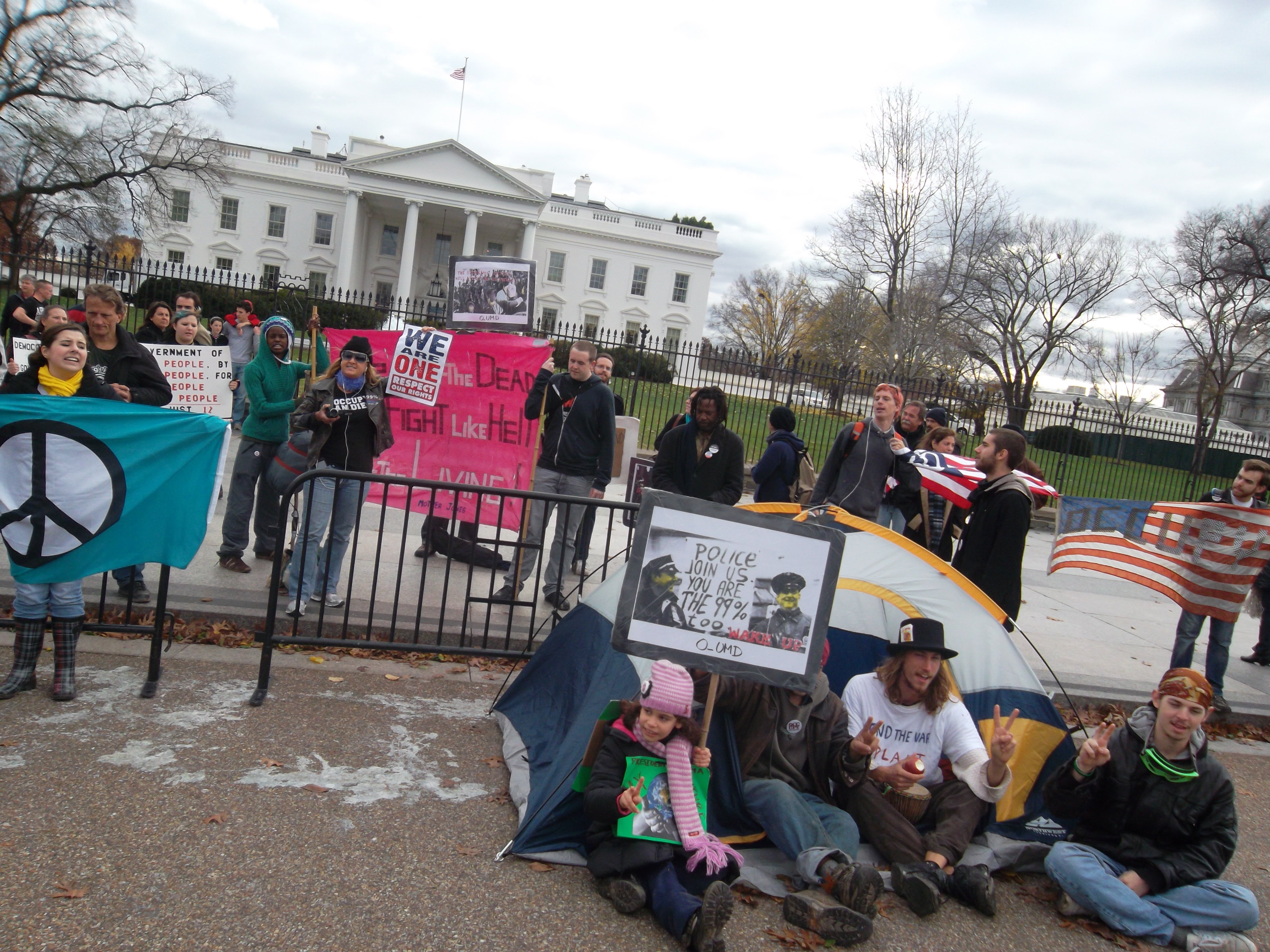NOTHING MORE THAN A STRONG GUT feeling led Bo Han, a 29-year-old native of Atlanta, first up to New York City, where he lived for about two weeks in Zuccotti Park during the Occupy Wall Street movement, and then, down to Washington, D.C. By foot.


I often drive from New York City to Washington, D.C., where I grew up in the suburbs. It’s a longish drive, just enough that you get bored and antsy. When I get to DC, I typically spend a few days just visiting family, and then I return to New York, where everything feels faster, more exciting, more real. That’s what I was planning to do this Thanksgiving break. But this time I knew that my city held more to offer than just family, and on the day before Turkey Day, I headed over to McPherson Square, where one of the main Occupy DC encampments is housed. I learned that most of the occupiers were headed toward a Thanksgiving meal prepared for them by the New York Avenue Presbyterian Church. On my way there, I walked by the White House. In front, a group of people were holding a banner that read “OCCUPY” and they had set up a tent. They were mic-checking.
My city was changed. Politics had finally arrived.
Sure, DC is supposedly the city of politics already. But the politics of Occupy is a different kind of politics. It’s a politics of emotion, a politics of individual empowerment. Many Occupiers do not hold masters degrees or even bachelors; some, like Bo Han, who marched from New York City to Washington, D.C., never graduated from high school.
The only lesson that Han needed to impel him to join this social movement came from his gut.
Han was working as a server at a restaurant in Atlanta. He was happy. “High-class restaurant, I was making really good money,” he told me. But then one day in October, he saw on the Internet that seven hundred protesters had been arrested on the Brooklyn Bridge. And he knew what he had to do. He put in his two weeks’ notice, telling his employers only that he was headed to New York City.
“They kept asking questions about it and that’s all I could tell them – ‘cause I didn’t really know. It was a gut instinct. I couldn’t explain what I wanted, in words – but I trusted it,” he told me.
Han sold all his stuff and got rid of his apartment, and set out toward his new life. His life with the revolution.
“I looked at it like, if I didn’t commit to doing that, then I wouldn’t commit to staying there. So I cut all the ties that I had that were holding me back. I really believed this was it,” said Han. “I wouldn’t just go with the gut instinct if I didn’t really believe it was gonna work.”
When he got to Zuccotti Park, New York City was being hit by an unexpected snowstorm. There was freezing rain, all day. Han set up his tent – he had never camped outside before – and once inside, watched his breath spilling out in front of him.
“Were you scared?” I asked him. And Han responded, “All the fear I had was subsided by the hope that this was it. That this was the movement, the thing that we needed for our generation. You know, I used to read in the history books about the movement, things that had happened, and it was like, where’s our opportunity? And in the cold, watching my breath as I exhaled, I still felt like this was it.”
Two weeks later, Han made a last-minute decision to join a group of marchers that were headed down to DC, where they would arrive at the moment that the Congressional supercommittee was debating what to do about the national debt (so far, no solution has been reached). They arrived two days before Thanksgiving. As Han sat with me over a pile of turkey that eager and warm volunteers had served to hundreds of Occupiers, he was visibly grateful for his experience. And I was grateful that the politics of Occupy had found a home in my home city. We sat there, both giving thanks for the politics of gut. Because it brought both of us to Occupy. And who knows where it might take us next.